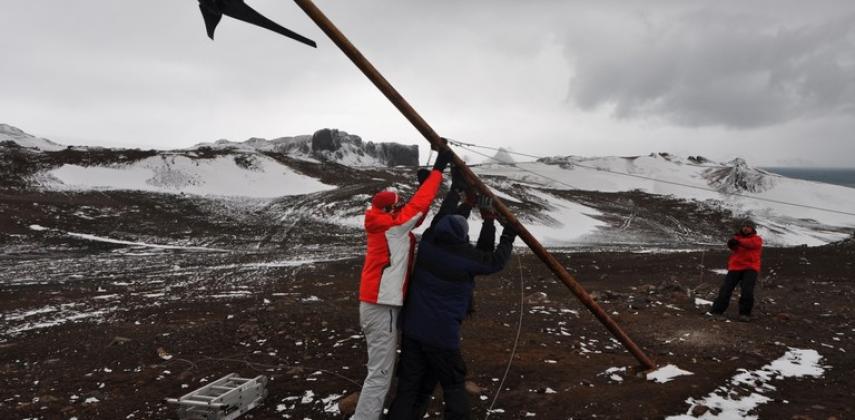"We can take small steps in everyday life, such as by saving paper by not making printouts or by pooling cars with colleagues," says Sharma, one of five engineers from CLP who took part in Project Cool. It was launched last March by the energy company to provide an opportunity for its staff to learn more about climate change, raise awareness of the global problem and contribute their expertise to sustainability initiatives on Antarctica.
Together with about 50 participants from around the world, Sharma - a senior associate of the China wind team at CLP - and his colleagues from the company's offices in Hong Kong, India and Australia spent two weeks exploring the Antarctic Peninsula on the International Antarctic Expedition.
The trip was organised by 2041, a non-governmental organisation founded by environmentalist Robert Swan, the first person to walk to the North and South Poles, with the aim of educating corporate leaders and young people about protecting the environment.
After completing an expedition that entailed cruising along ice cliffs and camping on the white continent, the five CLP employees, or "Cool Captains", spent another week on King George Island, where they set up two solar panels and repaired a wind turbine at 2041's education base, the first such facility on Antarctica.
"We are delighted that our Cool Captains successfully repowered 2041's education base on Antarctica with renewable energy devices that the team built on site," says Jane Lau, director of group public affairs at CLP.
The second round of Project Cool will roll out in March, with another five CLP staff setting off to Antarctica.
As a Cool Captain, Sharma has been involved in awareness-raising activities, including ones targeting CLP staff.
"We told them what we saw and related the experience with our work at CLP, using videos and photos to let them feel and understand the impact of climate change and the need to do something to protect the environment," he says.
Sharma also engages secondary school students through workshops and games.
"The students were excited and very receptive," he says. "They were keen to learn more about the issues and the ways they can be part of the solution. It's important that we start educating our future leaders now."
What you need
- Commitment to the environment and community
- A deep sense of responsibility to society
- Physical fitness and an outgoing personality
- Passing an essay writing and interview screening


